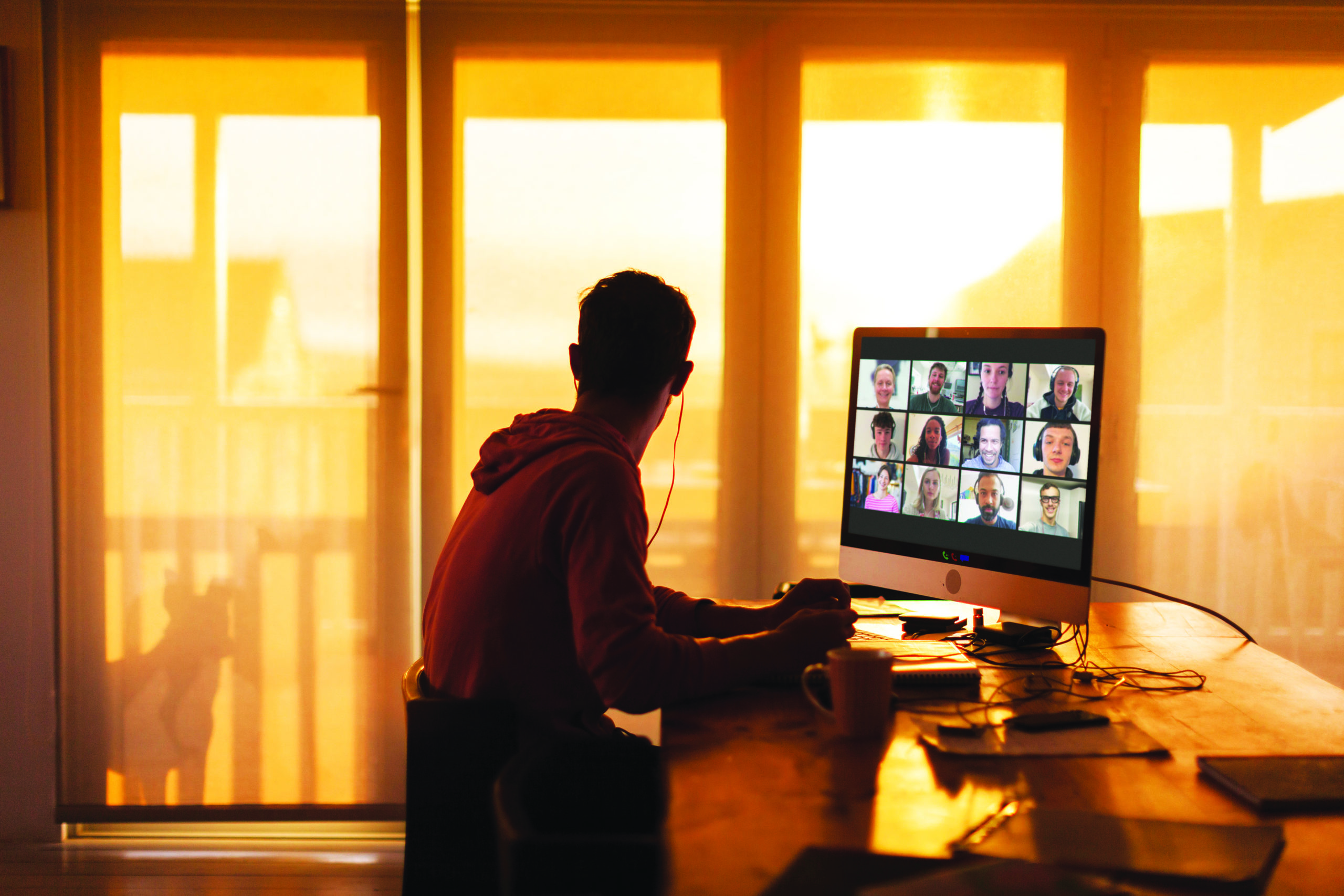The home will be hub and flexible working the norm. The result? Renewed employee trust, wellness and cost savings, say more companies.
Even the words out-of-the-box seem out of date at a time when shipping containers are turning into ICU hospitals and arms firms are making ventilators and personal protective equipment.
If technology is being repurposed, so too homes and humans.
Over the last few months the world over, the pandemic-induced ‘new normal’ has seen homes turning into head offices, with the volatile economy forcing businesses to rethink long-term strategies in a work from home (WFH) environment that looks here to stay.
Even the big corporates say this could extend post-pandemic.
Barclays CEO Jes Staley said its staff will not revert fully to its pre-January work habits. “There will be a long-term adjustment in how we think about our location strategy; the notion of putting 7,000 people in a building may be a thing of the past,” he said after the company reported its first quarter profits for 2020.
Internet giant Google said all staff are expected to work from home until 2021, according to a May 2020 report in Bloomberg. S,imilarly, Facebook will let staff work remotely through 2020. Twitter, on the other hand, announced a short while later it would let staff work from home “forever”.
Euromonitor International’s Global Consumer Trends 2020 report has highlighted areas that Covid-19 will have an impact for the year ahead. Some of these include multi-functional homes where, in the long-term, the home becomes the hub and businesses will adapt accordingly; private personalization, which will put privacy concerns on hold in the short term but will return in the long term; and inclusivity for all would see disabled communities benefitting from technology.
In South Africa, the government has stipulated five levels of lockdown dictating how businesses may be carried out, including which sectors can operate as levels change. This requires flexibility and being able to adapt from one week to the other.
Jordan Rittenberry, Edelman Africa CEO, says the company’s transition towards more flexible working policies has been sped up by the Covid-19 pandemic, and the process has been a success with renewed trust in employees.
“We believe that flexibility, particularly in the current environment, is a useful way for companies to treat their staff right and foster mutual trust,” he tells FORBES AFRICA. “The pandemic has required a rapid mind-set change as companies take on new responsibilities towards the people that work for them and employee wellness is the first port of call as we navigate these uncharted waters.
“Every crisis presents opportunities and new ways of doing things. The shift we are seeing now is one of those that could help to meaningfully improve employer-employee relationships if managed carefully.
“As more people work from home, we will naturally require less space over time and this will yield cost savings to the business that can be passed on to clients.
“Besides employee costs, real estate is our biggest expense,” he says. Pieter Bensch, Executive Vice President at Sage Middle East and Africa, has come to a similar conclusion. “We realized that we do not need as much office space going forward and working remotely using cloud technology tools has maintained productivity levels from our colleagues,” says Bensch to FORBES AFRICA.
“Our entire workforce began working remotely before lockdown and are in no rush to return until it is safe but have encouraged video calls so they can see each other.
“Our cloud accounting and payroll product sales have increased, which is a clear indication that our customers now understand the power and benefits of cloud solutions to maintain business continuity.”
The mental wellbeing of employees has also been top priority. “All Sage colleagues received a free subscription to Headspace, a brilliant award-winning app and guide to everyday mindfulness,” adds Bensch. The company also formed a ‘Family@Sage’ community for staff looking for peer support on how to adapt with differing family needs and challenges.
A Johannesburg-based agency called BetterWork that specializes in design thinking for human resources has been hosting weekly lunchtime Zoom calls since the beginning of lockdown in South Africa. Attendees include a mix of its professional network, members of The GoodWork Society and other members of the general public. Some of its takeaways have proven that WFH is more productive than working in the office, which cited minimal distractions and the extra hours gained from not having to sit in traffic. Additionally, introverts seem to be thriving and tend to feel more comfortable with contributions to teamwork. On the other hand, BetterWork says parents on the call have expressed being overwhelmed with not just their own work but also the additional responsibility of being teacher-guides to their children.
The company believes the home-office is now the responsibility of the employer where people-focused services such as tele-therapy, support for parents and social programs become an additional duty to ensure a healthy, productive team. It adds that an obvious benefit would be the compensation or subsidizing of laptops, stable internet connectivity, webcams, etc.
Palesa Sibeko, Co-founder of BetterWork, says offices are typically expertly assessed and constructed to suit an organization’s work activity needs, but the same is not true for the millions of homes that are now acting as places of work. “There is not a concerted effort to view home-work life more holistically, to identify the needs and address them to create environments conducive to doing great work.” BetterWork says it is currently looking into how to support organizations on this important mission.
– Nafisa Akabor
